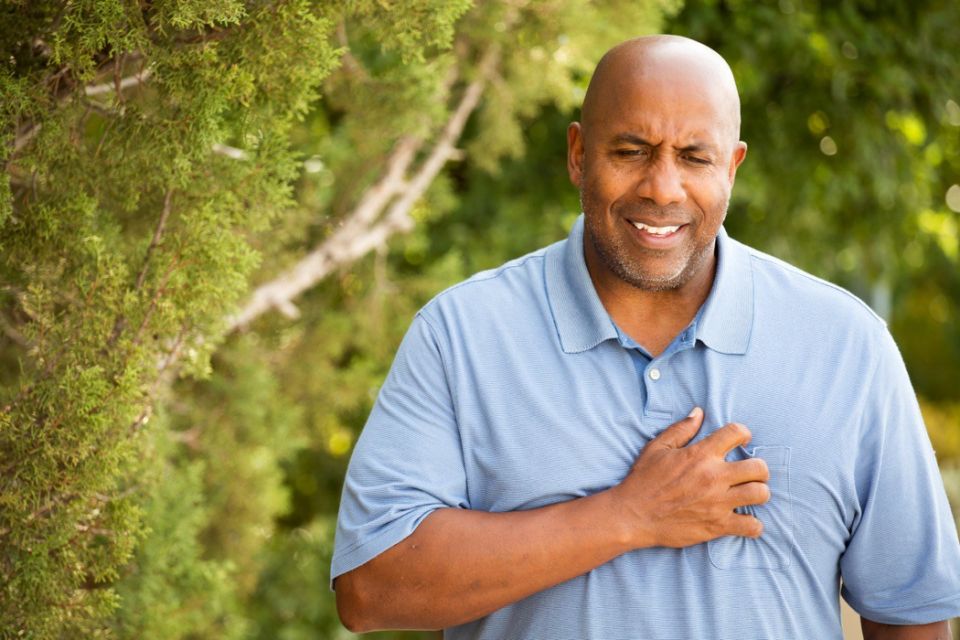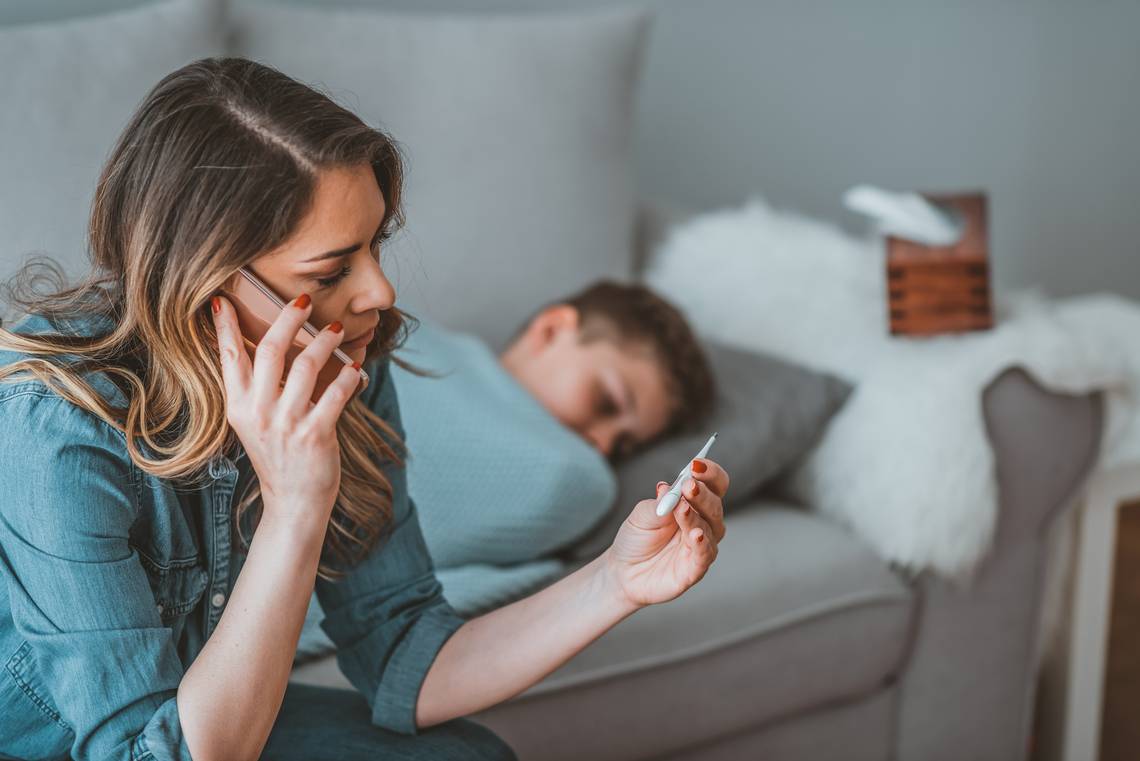There is a seemingly endless list of symptoms associated with the coronavirus—some are strange, while others are so common they can be easily overlooked. But some of the rarest symptoms may actually be the ones you need to worry about. In fact, experts say one unlikely symptom could mean you have a very severe COVID case: blue lips.
The Centers for Disease Control and Prevention (CDC) has a list of “emergency warning signs” for COVID, which they say are indicators that you should seek emergency medical care immediately. Among those symptoms is the appearance of blueish lips or face.
“Blue lips, otherwise known as cyanosis, are a COVID symptom that requires immediate medical attention because blue lips are considered a ‘late’ sign of oxygen deprivation,” explains Jenna Liphart Rhoads, PhD, a registered nurse and medical educator for Nurse Together.
Rhoads say it’s a lack of oxygen in the blood that causes someone’s lips to turn a blue color. This is likely to be the most apparent sign of oxygen deprivation because the “skin of the lips is very thin,” making cyanosis visible in this body part.
“Someone with a severe case of COVID could have blue lips if the inflammation in the lungs was enough to decrease the amount of oxygen the lungs and tissues in the body were receiving,” she explains.
However, Rhoads says blue lips as a coronavirus symptom is quite uncommon. And typically, people are likely to be displaying other respiratory symptoms, such as coughing and wheezing, because “for the lips to look blue, respiratory distress would also be very apparent.”
That doesn’t mean there aren’t exceptions. Amesh A. Adalja, MD, a senior scholar at the Johns Hopkins Center for Health Security, told Prevention that “there have been people who, for whatever reason, don’t have other symptoms” aside from blue lips. While this is even rarer than having blue lips at all, Adalja says these patients are referred to as “happy hypoxics.”
In fact, a doctor working in London’s Whittington Hospital just reported a case of a man who most likely had happy hypoxia. According to The Sun, Hugh Montgomery, MD, a consultant in intensive care at the hospital, says one of his COVID patients who seemed on the mend died just 15 minutes after he had last checked on him—a result of the patient appearing outwardly fine, but having dangerously low oxygen levels.
This is why as soon as blue lips appear, they are considered an emergency symptom. “If a person has decreased blood oxygen enough that the lips are blue, it is already a severe case of COVID,” Rhoads warns. Keep reading for more serious coronavirus symptoms you can’t ignore, and for other symptoms to be aware of,
- Trouble breathing

The CDC also lists trouble breathing as an emergency symptom, but Harvard Health says there is a difference between temporary shortness of breath and when you should consider it a severe symptom. After all, you could just be experiencing shortness of breath from something less extreme, like anxiety.
“However, if you find that you are ever breathing harder or having trouble getting air each time you exert yourself, you always need to call your doctor,” the Harvard Health experts explain on their website. “That was true before we had the recent outbreak of COVID-19, and it will still be true after it is over.”
2. Persistent pain or pressure in the chest

Another emergency COVID symptom is chest pain, according to the CDC. This is likely to be a dangerous heart issue brought on by the virus. Gregg Fonarow, MD, chief of the division of cardiology at the University of California, Los Angeles, told the American Heart Association that many patients show evidence of cardiac injury, and up to one-fourth of hospitalized coronavirus patients experience serious heart complications, including myocarditis and heart failure.
3. Sudden confusion

If you wake up confused and disoriented, you may be experiencing an emergency COVID symptom, according to the CDC. This is because sudden confusion or delirium can be a sign of a serious issue like low oxygen levels, seizures, or stroke.
4. Inability to wake up or stay awake

Losing consciousness during any illness is considered an emergency symptom, and the coronavirus is no exception, according to the CDC. You should seek immediate medical care if you are caring for someone with COVID and they cannot wake up or stay awake.



